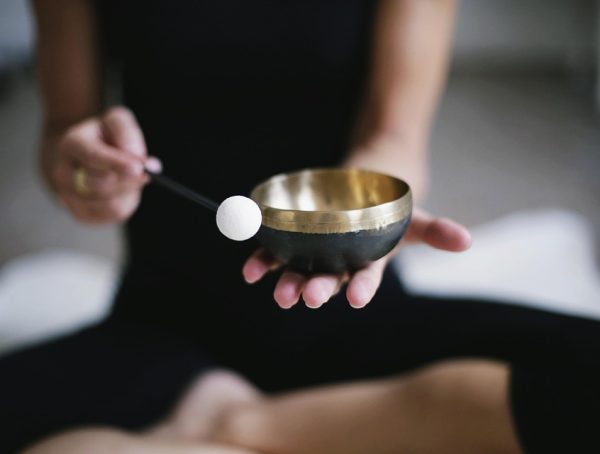How Meditation Enhances Emotional Well-Being
In today’s fast-paced world, the importance of mental health is gaining increasing recognition. Emotional well-being is a critical component of overall health, yet many struggle to find effective ways to enhance their emotional resilience and stability. One powerful tool that has been gaining favor is meditation, and for good reason. With roots in ancient practices, meditation offers a range of mental health benefits, particularly in enhancing emotional well-being. Let’s explore how meditation can positively impact your emotions and provide actionable steps to incorporate it into your daily routine.
The Science Behind Meditation and Emotional Well-Being
Research consistently demonstrates the positive impact of meditation on emotional health. Regular meditation can lead to significant improvements in mood, decrease levels of anxiety and stress, and help in managing depression. Here’s how meditation contributes to emotional well-being:
-
Mindfulness and Present Moment Awareness: Meditation encourages practitioners to focus on the present moment, reducing tendencies to ruminate about the past or worry about the future. This shift in mindset can foster a greater appreciation for life, decreasing the grip of negative emotions.
-
Stress Reduction: Regular meditation has been shown to lower cortisol levels, the hormone associated with stress. By cultivating a calm mind and reducing stress, practitioners often find they are better equipped to handle emotional challenges.
-
Increased Emotional Regulation: Meditation fosters a greater awareness of thoughts and feelings, which enhances the ability to regulate emotions. With this increased awareness, individuals can respond to situations with more clarity and composure rather than getting swept away by their feelings.
-
Enhanced Self-Compassion: Mindfulness meditation promotes self-acceptance and understanding, reducing harsh self-criticism. This self-compassion is crucial for emotional health, allowing individuals to be kinder to themselves during challenging times.
- Improved Focus and Concentration: Regular practice can enhance cognitive function, improving focus and attention. A more focused mind can lead to better decision-making and the ability to tackle emotional problems with clarity.
Action Steps to Integrate Meditation into Your Life
If you are looking to enhance your emotional well-being through meditation, consider these actionable steps to incorporate it more intentionally into your daily life:
-
Start Small: Begin with just 5-10 minutes a day. Choose a time that suits you—perhaps in the morning to set a positive tone for the day, or in the evening to unwind before bed.
-
Create a Comfortable Space: Find a quiet space free from distractions where you can sit or lie down comfortably. This could be a corner of your room, a spot in a park, or anywhere that makes you feel calm.
-
Use Guided Meditations: If you’re new to meditation, using apps like Headspace, Calm, or Insight Timer can be incredibly helpful. They offer guided meditations that cater to various needs—whether you’re dealing with stress, anxiety, or simply seeking to cultivate peace.
-
Practice Mindfulness Throughout the Day: Extend meditation practices into your daily life. Commit to being fully present during mundane tasks, like washing dishes or walking. Pay attention to your breath, bodily sensations, and surroundings.
-
Establish a Routine: Consistency is key. Try to meditate at the same time each day, making it a non-negotiable part of your routine, much like brushing your teeth or taking a shower.
-
Keep a Journal: After each meditation session, spend a few minutes writing about your experience. Reflect on feelings that arose, thoughts that came up, and any shifts in your emotional state. Journaling can deepen your understanding of your emotional patterns.
-
Join a Community: Consider joining a meditation group or class, whether in-person or via an online platform. Being part of a community can foster motivation and provide additional support on your meditation journey.
-
Be Patient with Yourself: Like any new skill, meditation takes time and practice. Don’t judge your thoughts as distractions; instead, acknowledge them and bring your focus back to your breath or the present moment.
-
Explore Different Techniques: There’s no one-size-fits-all when it comes to meditation. Experiment with various styles—such as loving-kindness, transcendental, or movement-based meditations until you find what resonates best with you.
- Track Your Progress: Keep track of how you feel before and after your meditation practice. Notice any noticeable shifts in your mood, anxiety levels, or emotional responses over time. This will help reinforce the benefits and motivate you to continue.
Conclusion
As you embrace the transformative power of meditation, remember that enhancing emotional well-being is a personal journey, unique to each individual. The benefits of meditation extend well beyond the cushion; they seep into various aspects of your life, enriching your relationships, work, and personal happiness. By incorporating even just a few minutes of meditation into your daily routine, you can pave the way toward a more balanced and fulfilling emotional state.
Embrace the journey, lean into the practice, and allow yourself to flourish in emotional well-being.
Inspiring Thought: “The mind is everything. What you think, you become.” – Buddha
If this article resonated with you and you want to dive deeper into health and well-being topics, follow Kevin on Instagram (@KSteineman) for more inspiration and insights!
You might also like
More from Meditation
The Role of Mantras in Transcendental Meditation: A Deep Dive
The Role of Mantras in Transcendental Meditation: A Deep Dive Transcendental Meditation (TM) has garnered a significant following across the globe, …
The Science Behind Meditation: Improving Mental Health Naturally
The Science Behind Meditation: Improving Mental Health Naturally In today's fast-paced world, the pursuit of mental wellness has become paramount. Thousands …
Understanding the 7 Types of Meditation for Beginners
Understanding the 7 Types of Meditation for Beginners: A Path to Inner Peace Meditation has become a popular practice in recent …


































